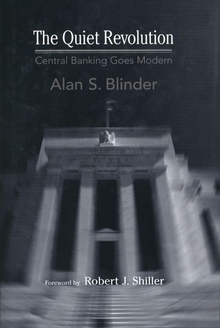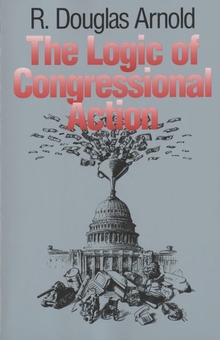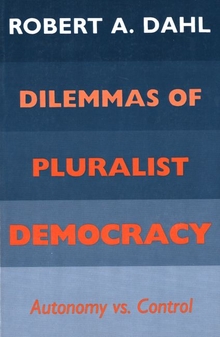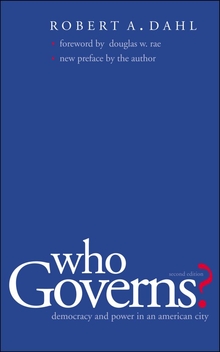Congress and the Bureaucracy
WARNING
You are viewing an older version of the Yalebooks website. Please visit out new website with more updated information and a better user experience: https://www.yalebooks.com
A Theory of Influence
R. Douglas Arnold
“[An] excellent book …Arnold seeks to examine the interactions between members of the House of Representatives and members of the upper bureaucracy in respect to the geographical allocation of federal expenditures….The methodology employed is ingenious and persuasive.”—David Fellman, The Annals of the American Academy of Political and Social Science
“The best book now available on the decision-making process linking bureaucrats and congressmen….A model blending of theory and evidence, overlaid with a lot of good judgment and political sensitivity.”—Richard F. Fenno, Jr.
“Douglas Arnold’s carefully wrought study of relations between the U.S. Representatives and selected administrative agencies is a challenging, thought-provoking, imaginative contribution that greatly enriches the field.”—Herbert Kaufman
“An indispensable book for political scientists studying Congress, and highly relevant for many others whose interest is in bureaucratic decision-making. The data and the methods of analysis are unique and make the work infinitely superior to previous work on this topic.”—Samuel C. Patterson
“The best book now available on the decision-making process linking bureaucrats and congressmen….A model blending of theory and evidence, overlaid with a lot of good judgment and political sensitivity.”—Richard F. Fenno, Jr.
“Douglas Arnold’s carefully wrought study of relations between the U.S. Representatives and selected administrative agencies is a challenging, thought-provoking, imaginative contribution that greatly enriches the field.”—Herbert Kaufman
“An indispensable book for political scientists studying Congress, and highly relevant for many others whose interest is in bureaucratic decision-making. The data and the methods of analysis are unique and make the work infinitely superior to previous work on this topic.”—Samuel C. Patterson
“[An] excellent book. . . . Arnold seeks to examine the interactions between members of the House of Representatives and members of the upper bureaucracy in respect to the geographical allocation of federal expenditures. . . . The methodology employed is ingenious and persuasive.”—David Fellman, The Annals of the American Academy of Political and Social Science
“The best book now available on the decision-making process linking bureaucrats and congressmen. . . . A model blending of theory and evidence, overlaid with a lot of good judgment and political sensitivity.”—Richard F. Fenno, Jr.
“Douglas Arnold’s carefully wrought study of relations between the U.S. Representatives and selected administrative agencies is a challenging, thought-provoking, imaginative contribution that greatly enriches the field.”—Herbert Kaufman
“An indispensable book for political scientists studying Congress, and highly relevant for many others whose interest is in bureaucratic decision-making. The data and the methods of analysis are unique and make the work infinitely superior to previous work on this topic.”—Samuel C. Patterson
"A thorough quantitative analysis that is well documented, carefully argued, and sensitive to the complexities of legislative and administrative behavior."—Virginia Quarterly Review
"An important contribution in a crucial area of political investigation."—International Affairs
"Arnold attempts to develop a theory about how bureaucrats make geographic allocation expenditure decisions for government projects and how congressional-bureaucratic relationships influence these decisions. His analysis . . . offers a better perspective of the allocational process that other major theories. . . . This book opens new avenues of exploration for both scholars and interested citizens."—Library Journal
"In this book, R. Douglas Arnold writes on one dimension of the problem of congressional influence on bureaucratic decision making: the measurement of congressional impact on bureaucratic allocations of federal funds to geographic areas. . . . [He] has done a fine job in his efforts at theory building, in his effectively developed case studies, and in his useful critiques of previous research. . . . This is an impressive book in design and execution."—Political Science Quarterly
"A careful, highly intelligent treatise on an important subject, thoroughly annotated and accessibly written. Recommended to all academic libraries."—Choice
"It is an admirable piece of work, at once bold and careful."—Martha Derthick, Director of Governmental Studies Program at The Brookings Institution
ISBN: 9780300025927
Publication Date: September 10, 1980
Publication Date: September 10, 1980
251 pages, 5 1/2 x 8 1/4











